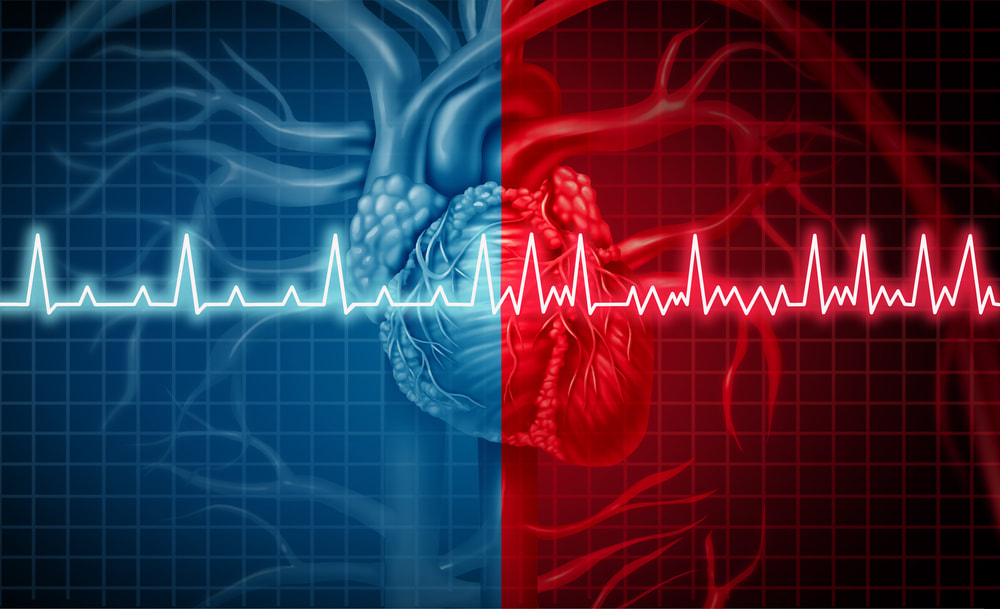What is atrial fibrillation?Atrial fibrillation is a type of abnormal heart rhythm. It affects the atrium, which is the upper chamber of the heart. Typically, the heart contracts and relaxes normally. What happens in atrial fibrillation is rapid electrical signals are sent to the upper chamber. This causes the atrium to quiver and beat ineffectively, which interferes with moving blood into the ventricles normally. The heart rate during episodes of atrial fibrillation may reach over 150 a minute. Symptoms and causesAccording to the American Heart Association (AHA), a-fib affects about 2.7 million people in the United States. In some cases, atrial fibrillation occurs without an underlying cause, but in many other instances, damage to the heart or other diseases can lead to atrial fibrillation. Common conditions that may cause atrial fibrillation include:
Symptoms of atrial fibrillation can vary. Some people may not even know they have the condition until they see their doctor and have an EKG performed. In other cases, symptoms are present. Symptoms of atrial fibrillation can include:
How atrial fibrillation may affect the eyesAtrial fibrillation can impact the entire body. When the heart does not beat effectivity, other organs and body systems are often affected, and that includes the eyes. For example, atrial fibrillation can lead to a retinal infarction. A retinal infarction is also called an eye stroke. It develops when blood flow is reduced or blocked to the blood vessels in the retina. According to the AHA, similar to a brain stroke, risk factors for a retinal infarction include high blood pressure, diabetes, and atrial fibrillation. There may also be an association between atrial fibrillation and glaucoma, especially in people that do not have elevated eye pressure. A study published in the journal Medicine looked at the possible link between atrial fibrillation and an increased risk of glaucoma. The study involved 117 people and included 79 that had atrial fibrillation. A control group of 38 people that had normal sinus rhythm was also included in the research. An eye exam was completed by an ophthalmologist. The results indicated that 34.2 percent of the people that had atrial fibrillation had glaucoma even with normal eye pressure. While only 13 percent had glaucoma in the control group. Atrial fibrillation also increases your risk for a stroke. A stroke involves reduced blood supply to the brain. Depending on the part of the brain affected, a stroke can lead to various types of vision problems, some of which may be permanent. Can changes in the eye indicate atrial fibrillation?Some research has indicated that tiny vascular changes in the eyes may indicate the presence of atrial fibrillation before other symptoms are present. One study, which followed 10,000 adults for 14 years found that microvascular changes in the small vessels in the kidneys or eyes was associated with atrial fibrillation. This is another reason that regular eye exams are vital to your overall well-being. Once diagnosed, atrial fibrillation is controllable through lifestyle modifications and medication. When atrial fibrillation is well-controlled, it lowers your risk of complications.
We hope the information provided helps you recognize signs of atrial fibrillation. If you have any of the symptoms above, please seek emergency care as soon as possible. If you have any questions, we are happy to help. Also, if you would like to schedule an appointment with one of our ophthalmologists, please phone our office at 508-746-8600. Comments are closed.
|
EYE HEALTH BLOGCategories
All
Archives
July 2024
|
|
Kadrmas Eye Care New England
55 Commerce Way, Plymouth, MA 02360
14 Tobey Road, Wareham, MA 02571 133 Falmouth Road (Rt 28), Mashpee, MA 02649 |
Phone Number:
1-508-746-8600 Hours: Monday through Friday — 8 AM – 4:30 PM |


 RSS Feed
RSS Feed
